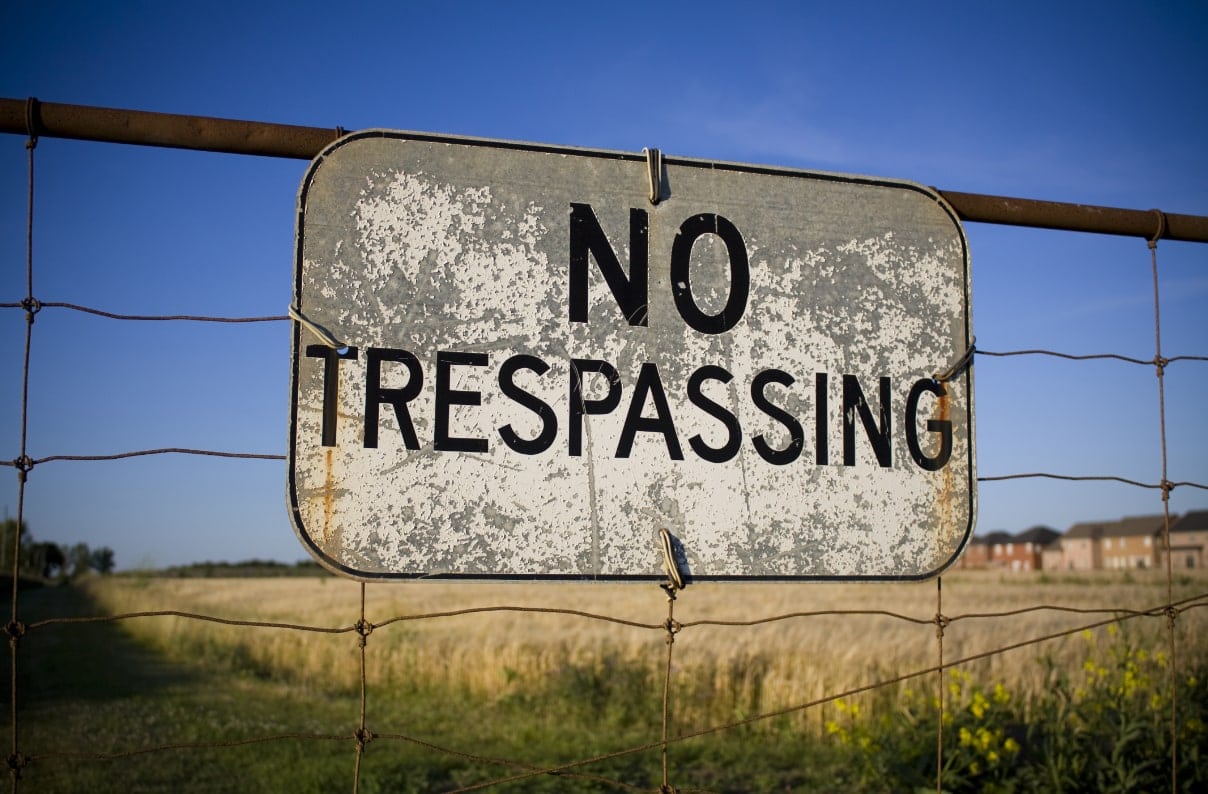Trespassing is, by definition, against the law. A property owner has the right to deny entry to those he does not want on the land (subject of course to civil rights laws and other related regulations), and the law will respect that right. At the same time, property owners can be liable for injuries that occur to persons on their land due to dangerous conditions. In the example of a store open to the public, liability may be clear where a customer is injured by a dangerous condition that the store should have made safe or protected customers from through a warning. But what about the right of person to bring a personal injury lawsuit when when he or she was trespassing on an owner’s property?
This can be a more complicated analysis, and you should speak to an experienced personal injury about your situation, but here are a few basic questions an attorney will ask in assessing whether the owner may indeed be liable.
Did the Owner Know About the Trespasser Beforehand?
The law separates trespassers into what are called “known trespassers” and “unknown trespassers.” Note that when children are the trespassers, the analysis is different (more on that below). But, generally, if the owner was unaware that a trespasser was present – or that trespassing was a frequent occurrence on the property – the duty of that owner to protect the unknown trespasser may be low.
Where, however, the owner knew that a trespasser was on the property, the owner does have a duty to protect that trespasser from certain dangerous conditions on the land which the owner knows of but which would be hidden to the trespasser. For example, if the owner is preparing a dynamite blast on the land and sees a trespasser walking close as the blast is about to occur, the owner should warn that trespasser to avoid liability for resulting injuries.
Was Trespassing Frequent on the Land?
Even if the trespasser did not know of a specific trespasser on the land but had reason to know that trespassing was frequent – say through left behind beer bottles or a worn path leading across the owner’s property to a beach – the owner also owes a legal duty to those trespassers to protect them from certain dangers on the land that could injure them.
Was the Trespasser a Child?
Children tend to be frequent trespassers, with their sense of adventure, lack of appreciation for rules, and excessive free time. The law makes special exceptions for children trespassers who are injured on another person’s lands, and in many cases the law will place a heightened legal duty on a property owner to protect children trespassers from dangers on the land.
This is especially the case when there is something on the owner’s land that could foreseeably attract children trespassers, such as a pool, a trampoline, or playground equipment. This is called the attractive nuisance doctrine, and, in such cases, the owner does have a heightened duty to take reasonable steps to protect children from dangerous conditions. If the owner fails to meet this duty, a personal injury lawsuit may be successful against the owner.
Experienced Personal Injury Attorneys in the Inland Empire
At McCune Wright Arevalo, LLP our personal injury team – led by by partner Cory Weck, a Marine Corps officer with over 20 years of service to his country and 15 years of experience litigating personal injury cases – has repeatedly won verdicts and settlements on behalf of clients across the Inland Empire in the millions of dollars. Our attorneys understand that the fear, anxiety, and pain that you and your family are going through following a personal injury, and we are dedicated to doing everything we can to help our clients get the help they need. Contact us today to schedule a consultation with one of our experienced personal injury attorneys.
